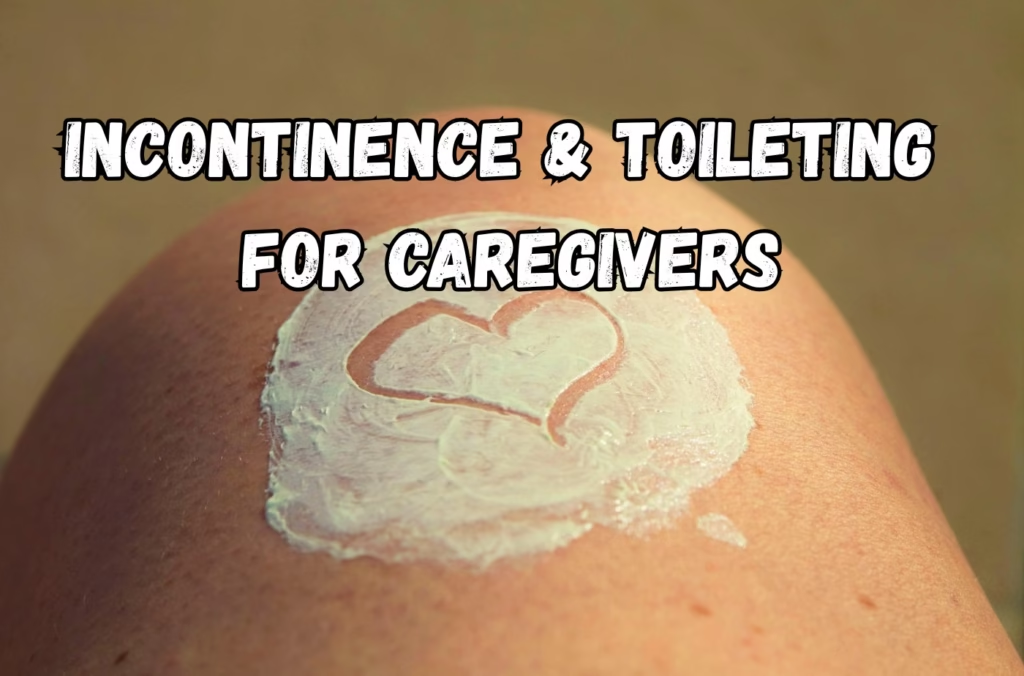Participating in the care of elderly parents often brings families closer, creating a network of support that benefits everyone involved. Engaging family in elderly care support is not only emotionally rewarding, but it also ensures that our loved ones receive the best care possible as they navigate this sensitive phase of life. But how do families create a sustainable support system that includes everyone from siblings to grandchildren?
1. Establishing a Foundation for Family Support
Recognizing the Needs of Elderly Parents
Understanding the unique requirements and challenges faced by elderly parents is the cornerstone of effective family support. Identifying individual health conditions, mental wellbeing, and the level of independence they maintain are crucial first steps. This recognition not only promotes empathy but also informs the family of the kind of support that will prove most beneficial. Whether it’s assistance with daily activities, medical management, or simply companionship, acknowledging these needs shapes a compassionate caregiving approach.
Establishing Open Communication Among Family Members
Open communication is the lifeblood of any supportive family unit, particularly when it comes to caring for an elderly parent. Regular family meetings should be arranged to discuss concerns, expectations, and objectives. Transparent conversations about your parent’s health, their wishes, and financial matters can prevent misunderstandings and create a cooperative environment. By encouraging everyone to voice their thoughts and feelings, mutual support is fostered, which is integral to the well-being of all involved.
Assessing the Caregiving Responsibilities and Delegating Roles
After identifying needs and facilitating open communication, it’s essential to establish clear caregiving responsibilities. This task involves evaluating the types of assistance required and ensuring that the caregiving workload is fairly distributed. Family members should understand their roles, whether it’s providing direct care, handling finances, or managing medical appointments. Delegation based on individual abilities, resources, and availability is key to maintaining a balanced caregiving situation, preventing burnout and promoting effective support.
engaging family in elderly care support requires understanding, communication, and collaboration. By assessing, discussing, and delegating tasks, families can create a nurturing and sustainable environment for their loved ones. This collective approach not only enhances the quality of care for the elderly parent but also strengthens family bonds during these important years.
2. Encouraging Inclusive Elderly Care Support
Involving Siblings in the Caregiving Plan
When providing care for elderly parents, active participation from all siblings is crucial. **Open dialogue and planning** among brothers and sisters can help distribute the responsibilities evenly, ensuring that the care is both effective and manageable for everyone involved. It is important to recognize each sibling’s strengths and limitations to assign tasks that align with their abilities and schedules. **Regular family meetings** can foster a collaborative environment, allowing siblings to update each other on the senior’s condition and coordinate efforts seamlessly.
Integrating Extended Family in Elderly Support Networks
Engaging Family in Elderly Care Support extends beyond the immediate household. Involving extended family members, such as aunts, uncles, and cousins, can significantly expand the support network for an elderly loved one. These relatives can provide valuable respite for primary caregivers and can contribute unique forms of assistance, like **errand running, meal prep, or social visits**. This collaborative approach not only diversifies the care given but also strengthens family bonds and creates a more enriching environment for the elderly individual.
Empowering Grandchildren to Contribute to Elderly Care
Grandchildren can play a **heartwarming and essential role** in caring for their elderly grandparents. By engaging them in age-appropriate tasks, such as reading to their grandparents or helping with light housework, they learn the value of empathy and service. Moreover, the presence of younger family members can provide emotional uplift and **enhance the overall well-being** of elderly adults. It’s an excellent opportunity to facilitate intergenerational bonding and impart life lessons on compassion and responsibility to the younger generation.
Ultimately, a cohesive approach that includes siblings, extended family, and grandchildren can lead to a robust support system that **uplifts and sustains** elderly care. It’s this broad-based involvement that can transform the caregiving experience into one of shared love, respect, and duty, benefiting everyone involved, especially the senior receiving care.
3. Managing Caregiving Dynamics
Addressing Family Conflicts and Resolving Differences
Caring for an elderly parent can bring underlying family conflicts to the surface. It’s essential to address these conflicts openly and constructively. Open communication can help prevent misunderstandings and maintain a cooperative dynamic. When disputes arise, consider involving a neutral third party, such as a mediator or counselor, who can assist in resolving differences in a non-confrontational manner.
Setting aside personal biases and focusing on the well-being of the elderly parent can help in reaching a common ground. Conflict resolution techniques, such as active listening and empathic engagement, are instrumental in fostering a collaborative environment for caregiving.
Maintaining Balance Between Caregiving and Personal Life
Achieving a balance between caregiving responsibilities and personal life is crucial for the well-being of both the caregiver and the elderly parent. Burnout can be a significant risk when caregivers neglect their health and personal needs. Self-care should not be overlooked, as it enables caregivers to be more effective in their role.
Caregivers are encouraged to set aside time for relaxation, hobbies, and social activities. Support from family, friends, or professional services can provide the necessary respite care. Balancing these aspects helps to ensure sustainable caregiving without compromising one’s health and happiness.
Utilizing Family Meetings to Enhance Cooperative Efforts
Family meetings are a valuable tool for engaging family in elderly care support. Regularly scheduled gatherings allow family members to stay informed, share responsibilities, and make important decisions collectively. During these meetings, caregivers can discuss the elderly parent’s current needs, progress, and any changes in their condition.
- Allocation of tasks: Divide the caregiving duties among family members based on individual strengths and availabilities. This can help distribute the workload and prevent caregiver fatigue.
- Updates on health status: Sharing updates ensures that everyone is aware of the parent’s health and any necessary adjustments to their care plan.
- Financial planning: Address monetary concerns and budgeting for caregiving expenses, which can reduce stress and avoid future conflicts.
Effective family meetings promote a sense of teamwork and unity, making the caregiving journey a shared responsibility. Moreover, they provide an opportunity to celebrate improvements and recognize the dedication of caregivers, which can be a significant morale booster.
4. Financial and Legal Considerations of Elderly Care
Navigating the Financial Aspects of Elderly Parent Care
When it comes to elderly parent care, understanding and managing the financial responsibilities is critical. It’s essential to assess the cost of care early on—whether it be in-home care, assisted living or nursing home facilities. Families should take a thorough look at their loved one’s income sources, such as pensions, retirement funds, and other assets that could contribute to their care.
Creating a detailed budget will help in identifying the financial gaps that might need filling. Moreover, it is key to consider the potential need for caregiver support, which may require additional funds. Being proactive in financial planning ensures that resources are aligned with the care that is needed.
Understanding Legal Implications and Preparing Essential Documents
Legal preparations are just as important in elderly parent care. Ensuring that essential documents are in order can avoid complications down the line. Firstly, a Power of Attorney (POA) permits designated individuals to make decisions on behalf of the elderly person, should they become unable to do so. Secondly, drafting a living will or advanced healthcare directive can provide clarity on the preferred medical treatments in varying scenarios.
Additionally, establishing a will can safeguard the distribution of assets according to the elderly individual’s wishes. Consulting with an elder law attorney is advised to confirm that all documents comply with state laws and that the elderly individual’s rights and interests are protected.
Exploring Insurance Options and Government Assistance Programs
- Investigate Medicare and Medicaid eligibility as these programs can cover many costs associated with healthcare and long-term care.
- Examine any existing long-term care insurance policies, which are specifically designed to cover services that regular health insurance does not.
- Look into Veterans’ benefits if applicable, which can provide additional resources for those who have served.
- Some states offer specific assistance programs to the elderly; contact local agencies for information.
Understanding these various sources of support early on makes it possible to integrate them effectively into the elderly care plan. engaging family in elderly care support is a comprehensive approach that takes into account the emotional, physical, and financial well-being of the elderly individual. These steps ensure that the family is prepared for the demands of elder care, both legally and financially, fostering a stable and supportive environment.
5. Supporting the Elderly Caregiver
Taking care of an elderly parent is a significant responsibility that often falls on the shoulders of one primary caregiver within the family. This task, while filled with moments of closeness and satisfaction, can also lead to a considerable emotional and physical toll on the caregiver. It is essential that the caregiver’s health and well-being are not overlooked in the process.
**Recognizing the Emotional and Physical Toll on the Primary Caregiver** is the first step towards effective support. Caregivers may experience feelings of burnout, fatigue, and stress, which can lead to negative health outcomes if left unaddressed. Acknowledging these challenges openly allows the family to work together in finding solutions.
One practical approach is **Creating a Rotating Schedule for Breaks and Time Off**. This ensures the primary caregiver can rest and recuperate, guarding against burnout. A schedule can consist of other family members or friends taking over caregiving duties for specific periods.
“`html
- Consider weekends or evenings weekly.
- Use a calendar app to track and manage the schedule.
- Rotate responsibilities to prevent burnout in any single helper.
“`
Moreover, **Providing Resources and Support Groups for Caregivers** can be incredibly beneficial. Connection with others who are facing similar situations can offer much-needed emotional support and practical advice. Resources might include:
“`html
- Local caregiver support groups.
- Online communities for caregiver support.
- Workshops on managing caregiver stress and improving care.
“`
By **Engaging Family in Elderly Care Support**, the entire family can contribute to a sustainable caregiving environment. This collaborative effort not only helps to reduce the strain on the primary caregiver but also enhances the quality of care provided to the elderly parent. Support groups and family involvement are instrumental in fostering a resilient support system for both the caregiver and the elderly individual receiving care.
6. Embracing Technology and Professional Resources in Elderly Care Support
Leveraging Technology to Enhance Communication and Safety
In today’s world, technology plays a crucial role in bridging communication gaps and ensuring the safety of elder individuals. For families looking to improve the quality of care for their senior members, modern devices and software can be invaluable tools. Video calling platforms, for example, enable regular face-to-face interactions, alleviating feelings of isolation among the elderly. Moreover, health monitoring apps and wearable devices provide real-time data on vital signs, which can be shared with family members and healthcare providers. These innovations in technology support proactive health management and rapid response to potential emergencies.
Engaging Professional Caregiving Services When Necessary
Sometimes the complexity of an elder’s needs may extend beyond what family can manage alone. In such scenarios, engaging professional caregiving services becomes essential to ensure the well-being of your loved one. Professional caregivers are trained to handle diverse health conditions and can offer specialized support tailored to each individual’s needs. These services not only provide skilled care but also offer respite for family members, empowering them to maintain balance in their own lives while still actively **Engaging Family in Elderly Care Support**.
The Role of Care Managers in Coordinating Family Support Efforts
Care managers represent an integral component of a comprehensive support system for elder care. They take on the role of navigators in the complex health care landscape, ensuring that all aspects of an individual’s care are coordinated effectively. Their extensive knowledge allows them to connect with a wide range of resources, from medical professionals to legal advice. By doing so, they facilitate a unified approach to care that encompasses the physical, emotional, and social needs of the elderly.
The expertise of care managers proves particularly valuable when multiple family members are involved in care or when making difficult decisions. These professionals act as mediators and advisors, aligning family members on care strategies and helping to ease tensions that can arise in such emotional settings. Ultimately, care managers help families navigate the journey of elderly care with grace and expertise.
Empowerment in Numbers: A collaborative approach to engaging family in elderly care support often leads to improved quality of life for both the elderly and their caregivers. Shared responsibilities enable a caring environment that honors the wishes of aging parents while distributing the workload to prevent caregiver burnout. With everyone on board, a strong family support system becomes a pillar of strength during a time when it’s needed the most.


